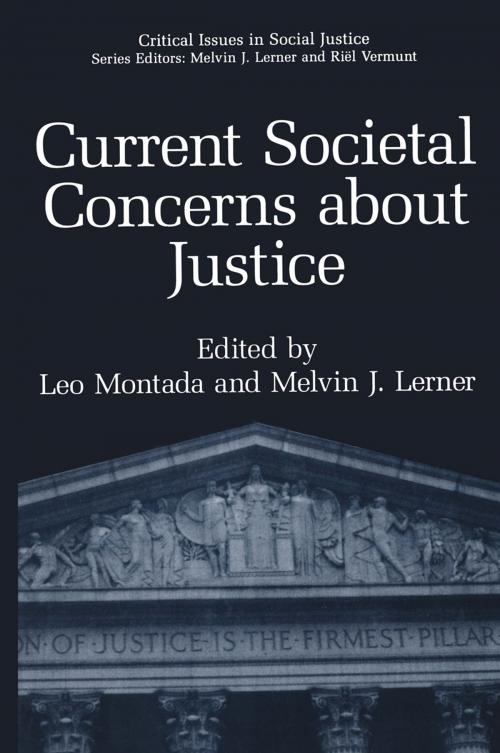Current Societal Concerns about Justice
Nonfiction, Health & Well Being, Psychology, Personality, Cognitive Psychology| Author: | ISBN: | 9781475799279 | |
| Publisher: | Springer US | Publication: | June 29, 2013 |
| Imprint: | Springer | Language: | English |
| Author: | |
| ISBN: | 9781475799279 |
| Publisher: | Springer US |
| Publication: | June 29, 2013 |
| Imprint: | Springer |
| Language: | English |
What role does justice play in the formation of public opinion and the scholarly debates about social problems? Does the perception of injustice force problems to appear on the political agenda? Does the perception of an injustice give momentum to social change? Or are violations of self-interest or threats to one's material welfare the more important factors? Or are empathy-driven concerns for the needy and the disadvan taged motivations to solve societal problems? What is known about the role justice concerns play in leadership? In several chapters of this volume, justice concerns and justice motives are viewed in relation to other concerns and motivations; welfare, self-interest, altruism. It is argued that the consensus of political theorists converges on mutual advantage as the main criterion of acceptable solutions to solving socie tal problems. In economics, self-interest is considered the driving force and provides the criterion of acceptable solutions. Sociological and social psychological exchange theories share these basic assumptions. Thus, questions are raised and answered concerning how justice and these other important motives appear in the analyses of societal prob lems and the search for solutions. Moreover, in addition to the issue of conflicting motives-self interest, altruism, justice-it is commonly recognized that the definition of what is just and what is unjust is open to question. In public as well as in scientific dialogues, diverging views about justice have to be integrated or decided upon.
What role does justice play in the formation of public opinion and the scholarly debates about social problems? Does the perception of injustice force problems to appear on the political agenda? Does the perception of an injustice give momentum to social change? Or are violations of self-interest or threats to one's material welfare the more important factors? Or are empathy-driven concerns for the needy and the disadvan taged motivations to solve societal problems? What is known about the role justice concerns play in leadership? In several chapters of this volume, justice concerns and justice motives are viewed in relation to other concerns and motivations; welfare, self-interest, altruism. It is argued that the consensus of political theorists converges on mutual advantage as the main criterion of acceptable solutions to solving socie tal problems. In economics, self-interest is considered the driving force and provides the criterion of acceptable solutions. Sociological and social psychological exchange theories share these basic assumptions. Thus, questions are raised and answered concerning how justice and these other important motives appear in the analyses of societal prob lems and the search for solutions. Moreover, in addition to the issue of conflicting motives-self interest, altruism, justice-it is commonly recognized that the definition of what is just and what is unjust is open to question. In public as well as in scientific dialogues, diverging views about justice have to be integrated or decided upon.















